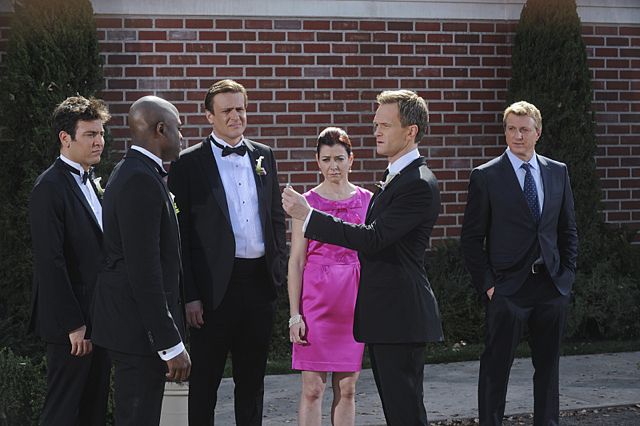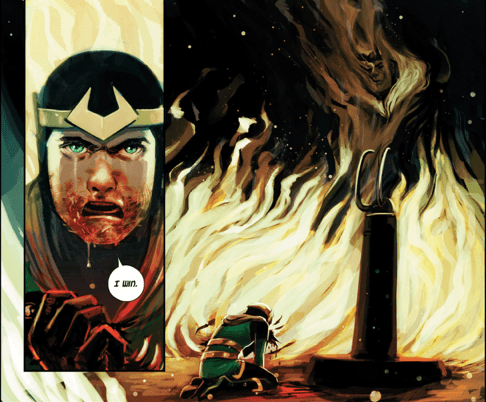How I Met Your Mother Season 9, Episode 21 “Gary Blauman”
Written by Kourtney Kang
Directed by Pamela Fryman
Airs Mondays at 8pm ET on CBS
With only three episodes remaining, “Gary Blauman” seems an odd time for How I Met Your Mother to pause and tell a story about an extremely insignificant character in the show’s extensive mythology. Why would a show steamrolling to huge emotional moments in the finale slam on the brakes for twenty minutes to talk about Gary Blauman, if only to bring back Taran Killiam (Cobie Smulders’ husband) for a few laughs? Framed around Ted and The Mother’s first date, it’s made pretty clear from the opening shot that this story is important – and although it takes its sweet time getting there, sticks its landing with a touching callback to the Two-Minute Date and numerous other characters and references to the show.
Of course, this is the kind of thing we’ve been expecting from How I Met Your Mother all season – “Gary Blauman” is able to give this meaning beyond simple fan service, however. Like the most philosophic HIMYM episodes, “Blauman” is about the journey of adult life; and specifically, those who fall in the cracks as the years pass. As adults, our lives will take us in tons of different directions, and relationships will begin and end, time and time again. Losing touch with someone is not inherently an interesting thing; more often than not, it’s what will eventually happen with any person we meet.
What’s interesting, and what “Blauman” focuses on, is what separates the most important people in our lives, from those who slip and fall away over the years to lead their own lives; as Ted Moesby shows on his first date with The Mother, it’s the moments we make the effort to keep someone in our lives that stand out. What makes Ted’s story more powerful than any of the other examples giving nods to minor characters like Carl, Zoey, and Blah Blah (Carol!), is that he’s talking about the love of his life, recalling the first date of a relationship that would’ve never came to be, had someone not stepped up and did something.
Surprisingly, that person wasn’t Ted, it was The Mother: for the first time, Ted doesn’t try and deliver some speech or make some grand gesture to keep a girl interested in him. Maybe he was acting on faith, maybe he was just tired of the chase: for whatever reason, “Blauman” ends with The Mother taking a chance, ignoring the logical warnings of “it’s too soon” (being four days after she was proposed to), or any other kind of arbitrary obstacle she might’ve been able to think of.
It’s always easier to just accept things as they are and move on; but How I Met Your Mother posits this as an empty, passive life. We can only find happiness in life if we take chances, and we can only make connections with other people if we take the same risk. We can always find an excuse to hate someone or close ourselves off from new possibilities; whether it’s some assumed socially-accepted time line of life, or just a long-lasting grudge over an Accidental Curly, it’s always easier to find the dark side of things and go running in the other direction. And although “Blauman” uses a very, very weird vehicle to deliver this with its titular character, those flash-forwards nail the idea home – capped by a heartwarming tribute to many of How I Met Your Mother‘s quirky guest stars, showing the happy endings of characters big and small, a final farewell to the people of Ted Moesby’s nine-year journey as he stands on the precipice of a new life (one he has no idea is arriving yet, despite his plans to move to Chicago, which clearly do not work out).
As flashy as that closing sequence is, and as hard as “Blauman” leans on superficial recurring jokes for a lot of its mid-episode material (like the time-filling dramatic pauses), the conclusion to “Blauman” is the kind of muted catharsism the show’s been doing so well for the last month. And of course, it doesn’t fail to deliver its showboat-y material, delivering a knockout scene to set the stage for Ted and The Mother’s first kiss, and getting a head start on the many goodbyes, callbacks, and farewells left to tie up in the final three episodes.
— Randy





